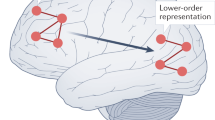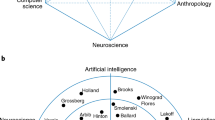Abstract
IT is disconcerting to find how rarely physical scientists trouble to make themselves familiar with the results of recent psychological investigation, even those results of the more important and far-reaching kind. While the psychologist is well-nigh constrained to follow, in a general way at least, the progress of physical inquiry, the physicist, when he ventures into the psychological field, almost invariably has recourse to a number of obsolete ideas, ideas which have long since been discarded by psychologists themselves.
This is a preview of subscription content, access via your institution
Access options
Subscribe to this journal
Receive 51 print issues and online access
$199.00 per year
only $3.90 per issue
Buy this article
- Purchase on Springer Link
- Instant access to full article PDF
Prices may be subject to local taxes which are calculated during checkout
Similar content being viewed by others
Author information
Authors and Affiliations
Rights and permissions
About this article
Cite this article
HICKS, G. Philosophy and Modern Science. Nature 135, 1035–1036 (1935). https://doi.org/10.1038/1351035c0
Published:
Issue Date:
DOI: https://doi.org/10.1038/1351035c0
Comments
By submitting a comment you agree to abide by our Terms and Community Guidelines. If you find something abusive or that does not comply with our terms or guidelines please flag it as inappropriate.



